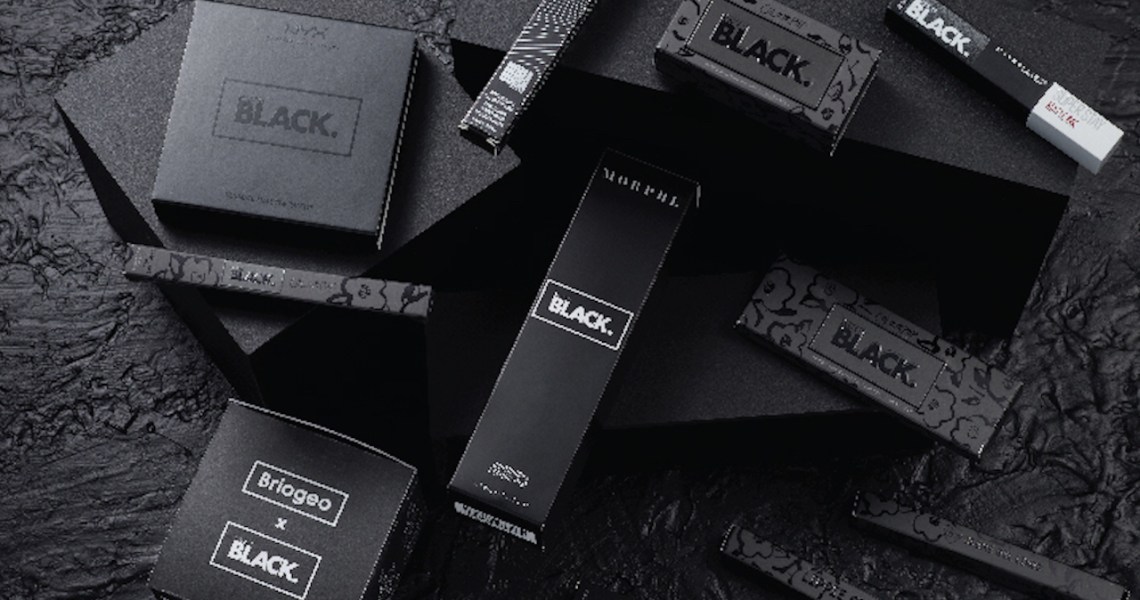Sharon Chuter, Uoma Beauty founder and CEO, is back with another challenge for the beauty industry.
On Friday, Chuter debuted the Make It Black campaign tied to Black History Month to shift perceptions around what it means to be Black. Chuter has partnered with nine beauty brands to release limited-edition hero products, complete with updated black product packaging, that will raise funds for emerging Black founders. Participating brands include Briogeo, Colourpop, Dragun Beauty, Flower Beauty, Maybelline, Morphe, NYX Professional Makeup, Pura and Ulta Beauty, as well as Chuter’s own Uoma Beauty. Products will be sold through each brand’s individual website, MakeItBlack.org and Ulta.com.
One-hundred percent of the gross profits from the limited-edition products will be contributed to the new Pull Up For Change Impact Fund, which will give capital and grants to Black-owned businesses and Black founders. Members of the public will also be able to directly donate to the initiative through the fund’s website. To determine distribution of the money, the organization will host live pitch contests; Black founders will pitch their ideas in a public forum, and the public will vote to decide who the funding will go to. In addition, Alisa Williams, partner at VMG Partners, is helping to create a VC pipeline for Make It Black to help combat the serious funding issue that exists for diverse founders.
“The first [focus] of Make It Black is to attack language. People don’t pay enough attention to language. If you go to your dictionaries today, the definitions of black will shock you. They are confronting; the synonyms, the related words are things like ‘evil,’ ‘threatening,’ ‘vile,’ ‘wicked.’ Language is so important because it shapes our collective consciousness,” said Chuter, who also started a Change.org petition this week to make the Oxford English Dictionary change its definition of the word black.
She said Make it Black was created to “reject this negativity” that exists. Moreover, Chuter argued that the way the word black is positioned is in stark opposition to way its perceived in fashion or beauty, as it known to be a chic or elevated color.
In June, Chuter became the public face of challenging racial injustice in beauty. She launched Pull Up For Change, which pushed companies to publicly release the number of Black employees they have at their organizations within 72 hours. Make it Black is only one pillar of the larger Pull Up For Change initiative that will remain ongoing.
Other beauty companies are recognizing that they must reveal their ongoing commitments to BIPOC businesses and customers. Ulta revealed its revamped diversity and inclusivity initiatives this week, pledging more than $25 million to training and opportunities for associates, and marketing for to its Black founders. And Sephora and Ipsy announced their own commitments to Black beauty businesses in January. Sephora released its Racial Bias in Retail study and plans to improve guest and associate experiences. Both Sephora and Ulta plan to double their assortment of Black-owned brands by the end of 2021. For its part, Ipsy added more Black-owned beauty brands to its Glam Bags last month, including Fenty Beauty, Mented and Uoma Beauty. It is also creating a $1 million fund to invest in product sourcing from Black-owned brands.
Ad position: web_incontent_pos1
Chuter emphasized that the Pull Up For Change Impact Fund will not have a financial stake in the companies it gives money to. And while mentorship was a popular focus of initiatives started by Glossier and Clean Beauty Summer School, Chuter argued that many Black founders are “over-mentored”
“One of the reasons we are focused on deploying cash is because Black founders are often over-mentored and under-invested,” she said. “Everybody has a mentorship program for Black founders; there are incubators everywhere. Has anyone ever thought about what happens to these people when they come out of the mentorship program? I can tell you: nothing. That is a result of lack of confidence. At what point are we going to stop mentoring people and invest in them?”




